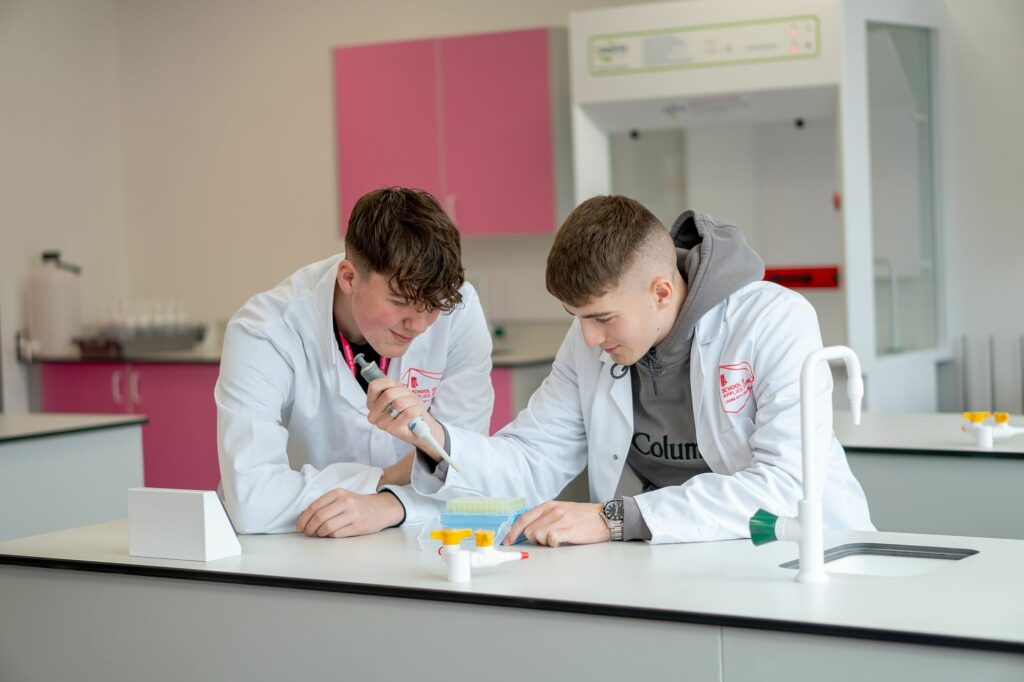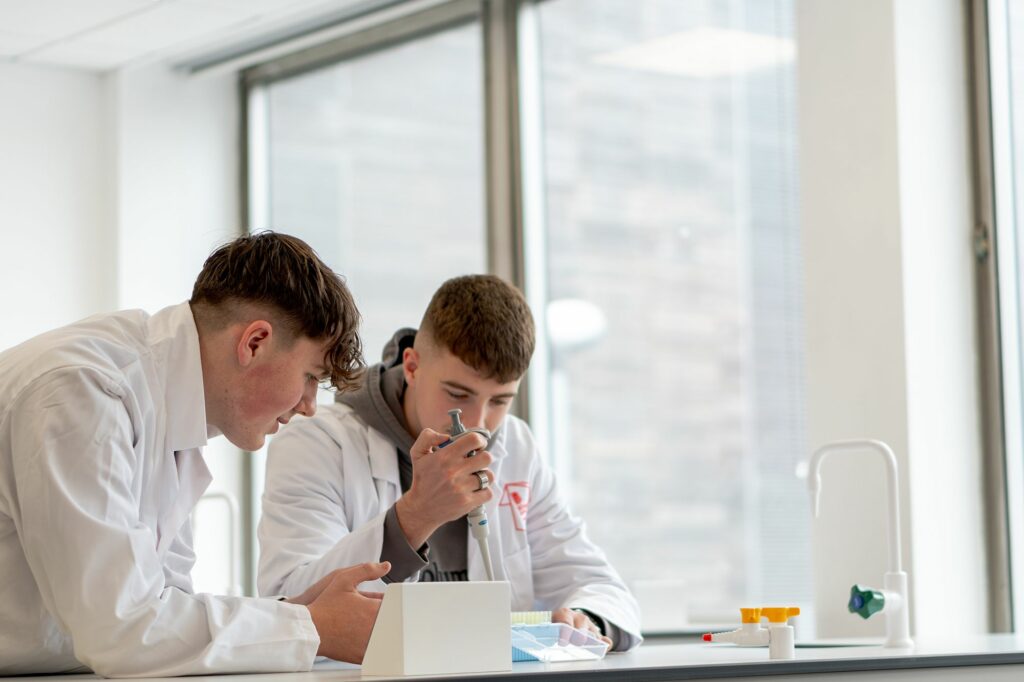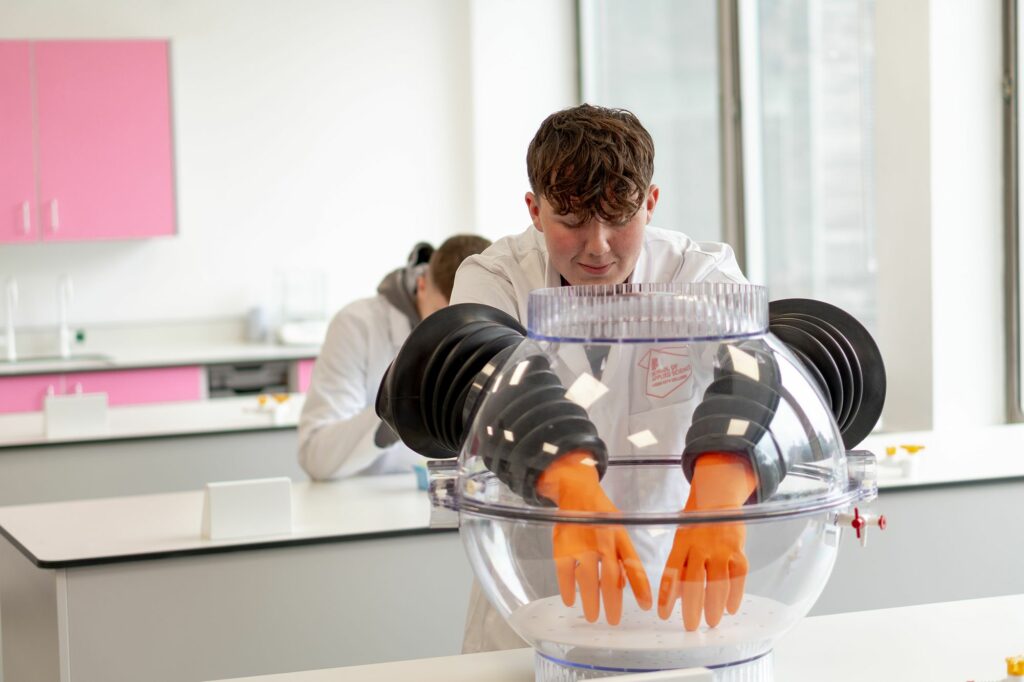What Our Students Say
Did you know!
- A qualification in science can lead to a whole host of opportunities in health-related industries, the pharmaceutical industry, land-based industries, environmental work, and sport and fitness.
- By 2024, the science, engineering, and production technician sector in Leeds is predicted to grow by 2.3%. (EMSI, 2019)
Course Information
Introduction
Get your knowledge down to a science with this useful course that strengthens your technical and transferable skills.
More about STEMPlease note the Fees(Adult) may be free depending on student circumstances, please enquire for more information.
Overview
From infectious diseases and their cures to the gripping world of astronomy – you’ll find a whole host of science that springs to life on this foundation diploma. You’ll develop scientific techniques and conduct experiments, all while sharpening your communication, analytical and research skills. You’ll also gain technical and transferable skills that will stand you in good stead as your education and career progresses. This course provides you with a BTEC NQF Foundation Diploma that’s equivalent to one and a half A levels.
Who is this course for?
This course is for anyone in years 11 or 12 looking to take the next step towards a career in science. It is particularly ideal for individuals who want to combine academic study with practical skills, study in professional-standard facilities and take advantage of our industry links.
Course units/modules
Unit 1: Principles and Applications of Science I
Unit 2: Practical Scientific Procedures and Techniques
Unit 3: Science Investigation Skills
Unit 4: Laboratory Techniques and their Application
Unit 12: Diseases and Infections
Unit 16: Astronomy
Benefits and skills
- Study a range of topics, including astronomy and infectious diseases
- Utilise scientific techniques to conduct practical experiments
- Strengthen your research and investigative skills
- Gain lifelong technical and transferable skills
- Study and work in professional laboratories
- Analyse and identify contemporary scientific issues
- Improve your analytical, critical thinking and communication skills
- Navigate the laboratory using appropriate techniques.
- Utilise scientific techniques to conduct experiments.
- Strengthen your science investigative skills.
- Boost your communication, analytical, evaluative, and research skills.
Entry requirements
Five GCSEs at grade 4 including English, maths and science.
Available apprenticeships and progression options
Progression may include a second year of study to achieve the full Extended Diploma or relevant employment.
Employment Statistics
-
Biological scientists and biochemists
Average Salary£42,120
-
Physical scientists
Average Salary£47,840
-
Natural and social science professionals n.e.c.
Average Salary£43,680







Follow us on Social Media